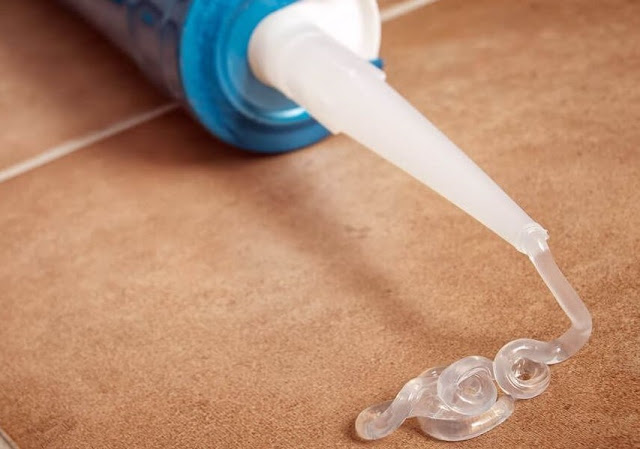The Versatile World of Industrial Adhesives
 |
| Industrial adhesives |
Adhesives play a vital role in various industrial manufacturing processes by bonding different materials together. From construction to automotive to medical devices, industrial adhesives are used in a wide array of applications across multiple industries.
Types of Industrial Adhesives
There are several main types of industrial adhesives used depending on the materials being bonded and the requirements of the application.
Epoxy Adhesives
Epoxy adhesives are known for their high strength and excellent adhesion to various substrates like metals, composites and plastics. They offer excellent chemical and heat resistance making them suitable for structural bonding. Two-part epoxy systems are commonly used as they cure at room temperature into strong durable bonds.
Cyanoacrylate Adhesives
Also known as superglues or instant adhesives, cyanoacrylate adhesives are acrylic-based Industrial Adhesives that cure very rapidly upon contact with moisture or metal substrates. They provide extremely strong bonds within seconds and are used for light-duty tasks like repairs. However, they have limited flexibility.
Polyurethane Adhesives
Polyurethane adhesives offer high adhesion to many surfaces as well as flexibility and impact resistance. Two-part polyurethane systems are weather resistant and vibration damping, making them useful for applications with dynamic stresses. Their versatility makes them popular for automotive and construction uses.
Silicone Adhesives
Silicone adhesives are noted for their ability to withstand high and low temperatures along with resistance to moisture, chemicals, and UV radiation. They also have excellent electrical insulation properties. Commonly supplied as one- or two-part systems, silicones find application in gasketing, insulating, and structural bonding.
Applications of Industrial Adhesives
Automotive Assembly
Adhesives play a critical role in automotive assembly, joining vehicle parts that requires structural integrity. Epoxies and polyurethanes are widely used for bonding vehicle bodies, chassis components, and drive trains together. Adhesives also replace welding in some areas for weight savings, improved crash performance, and corrosion resistance.
Appliance and Furniture Manufacturing
The furniture and appliance industries heavily rely on adhesives for laminating, edge-banding, frame assembly, and other applications. PVA, polyurethane, and epoxy adhesives offer the strength, longevity and design flexibility needed for furniture and cabinets. Appliance housings, doors and other parts are also joined together using structural adhesives.
Construction
Adhesives significantly impact the construction industry through applications like flooring installation, window and door fabrication, roofing, and tile setting. They substitute mechanical fasteners in engineered wood products and are used in flooring products like LVT. Silicone, polyurethane, and acrylic caulk and sealants provide weatherproofing and moisture barrier functions.
Benefits of Using Industrial Adhesives
Strength and Durability
Properly selected and applied adhesives can create joints that are as strong or stronger than the parent materials. They distribute stresses over bonded areas providing fatigue resistance. Adhesives also enable durable bonding of dissimilar materials.
Design Flexibility
Adhesives allow for innovative designs by bonding complex shapes and assemblies that would be difficult or impossible to join with other methods. They enable thinner, lighter designs and creation of new composite materials.
Corrosion Resistance
Adhesives protect bonded metals from corrosion by eliminating fastener holes and forming a Barrier between joined surfaces. They have replaced rivets and metallic fasteners in many critical corrosion-prone applications like aircraft manufacturing.
Cost Savings
Adhesive bonding saves on labor, tooling and production costs compared to mechanical fasteners. It provides design efficiencies through faster assembly and reduced part counts. The overall production cost is lower than alternate joining techniques for high-volume manufacturing.
Quality and Performance
Consistently strong, void-free adhesive bonds improve product durability and uptime. Automated adhesive application processes enable tight quality control. Performance-enhancing properties like vibration damping provided by some adhesives add to their appeal.
Industrial adhesives offer assembly and manufacturing advantages across sectors by providing strong, durable, flexible and corrosion-resistant bonding. Their versatility has led to diverse applications in automotive, construction, appliances and many other industries. Advances in adhesive technologies continue to unlock new bonding solutions supporting innovative product design.
Get more insights on Industrial Adhesives
About Author:
Money Singh is a seasoned content writer with over four years of experience in the market research sector. Her expertise spans various industries, including food and beverages, biotechnology, chemical and materials, defense and aerospace, consumer goods, etc. (https://www.linkedin.com/in/money-singh-590844163)

%20Filter%20Market.jpg)

Comments
Post a Comment